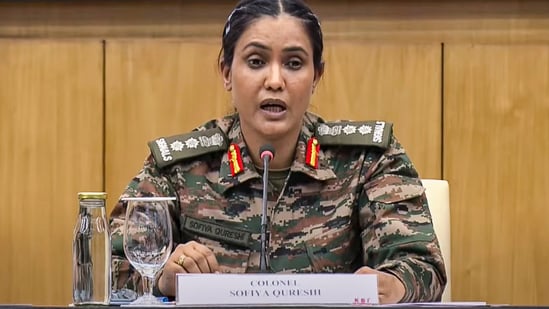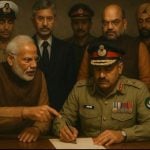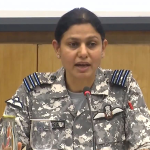In a recent press briefing, Colonel Sofiya Qureshi of the Indian Army firmly rejected Pakistan’s claims that India’s military operations had resulted in significant damage to critical defense installations, including the S-400 missile system and BrahMos missile bases. Pakistan had alleged that Indian airfields and ammunition depots were also targeted in the operations, but Colonel Qureshi labeled these reports as part of a broader misinformation campaign by Pakistan.
The briefing, held on May 10, 2025, came in the aftermath of India’s launch of Operation Sindoor, a military action aimed at dismantling terrorist infrastructure in Pakistan and Pakistan-administered Kashmir (PoK), which followed a deadly terrorist attack in Pahalgam, Jammu and Kashmir, in April 2025. The operation, a retaliatory measure by India, escalated tensions between the two nuclear-armed neighbors, drawing attention from the international community due to the potential for broader conflict.
Colonel Qureshi was quick to assert that the claims of Pakistan’s military damage were baseless, emphasizing that India’s defense capabilities, including the advanced S-400 and BrahMos systems, remained intact and operational. The BrahMos missile, a key component in India’s strategic deterrence, was specifically mentioned in the briefing as an advanced, world-class defense asset developed in collaboration with Russia.
In addition to refuting the military claims, Colonel Qureshi took the opportunity to emphasize India’s secular values in the face of Pakistan’s accusations that Indian forces had deliberately targeted mosques during the operations. “India is a secular nation, and our army is a beautiful reflection of the constitutional values of India,” she stated, countering the notion that religious sites were purposefully targeted.
The conflict, rooted in the long-standing territorial dispute over Kashmir, has seen several spikes in military confrontations, including the 1971 war and the 1999 Kargil conflict. Both nations’ nuclear capabilities have heightened global concerns about the potential for large-scale conflict, with the international community urging both sides to prioritize dialogue and peace-building measures.
As tensions persist along the Line of Control (LoC), both nations remain on high alert. While military exchanges continue, global powers, including the United Nations and prominent international figures, have stressed the importance of de-escalation and renewed efforts for a diplomatic resolution. The situation remains fluid, and many hope that the ongoing diplomatic dialogue will lead to a reduction in hostilities and a path toward a peaceful solution to the Kashmir issue.













